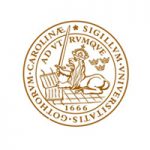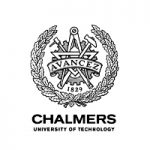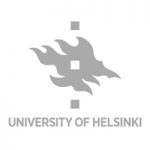项目介绍
Lund University was founded in 1666 and is repeatedly ranked among the world’s top universities. The University has around 47 000 students and more than 8 800 staff based in Lund, Helsingborg and Malmö. We are united in our efforts to understand, explain and improve our world and the human condition.
Lund University welcomes applicants with diverse backgrounds and experiences. We regard gender equality and diversity as a strength and an asset.
Job assignments
The main duties of doctoral students are to devote themselves to their research studies, which includes participating in research projects and third cycle courses. The work duties may also include teaching and other departmental duties (no more than 20%).
The research will focus on
Credible scientific machine learning for partial differential equations
This project lies at the intersection of numerical analysis, uncertainty quantification, and scientific machine learning. It primarily focuses on ensuring the credibility and interpretability of machine-learning-based approximations for partial differential equations (PDEs) that integrate data. The research will pursue two main directions: (a) developing mathematically rigorous and physically meaningful uncertainty quantification for kernel methods (e.g., Gaussian processes) employed in approximating PDEs, and (b) investigating the preservation of critical physical properties (e.g., conservation laws) in machine-learning-based system parametrization through PDE-constrained optimization. The primary application areas for the developed numerical methods are computational physics and climate modeling.
Eligibility
A person meets the general entry requirements for third-cycle courses and study programmes if he or she: 1. has been awarded a second-cycle qualification, or 2. has satisfied the requirements for courses comprising at least 240 credits of which at least 60 credits were awarded in the second cycle, or 3. has acquired substantially equivalent knowledge in some other way in Sweden or abroad. The head of department may permit an exemption from the general entry requirements for an individual applicant, if there are special grounds.
To be admitted to the third-cycle programme in Numerical Analysis the student must have passed second-cycle courses in mathematics comprising at least 60 credits including at least 15 credits in Numerical Analysis. A degree project of at least 30 credits must be included. Equivalent knowledge acquired through corresponding programmes will be assessed individually. In order to enable interdisciplinary initiatives and important specialisations in certain areas, students with qualifications in subjects other than Numerical Analysis may be considered for admission.
Basis of Assessment
Selection for third-cycle studies is based on the student’s potential to profit from such studies. The assessment of potential is made primarily on the basis of academic results from the first and second cycle. Special attention is paid to the following
- Knowledge and skills in numerical analysis, specifically numerical methods for differential equations and numerical linear algebra are required.
- Knowledge in applied statistics or machine learning is a merit, and experience with simulations in computational physics or climate science is a strong merit.
- An assessment of ability to think independently and to formulate and tackle research problems.
- Very good oral and written proficiency in English.
Consideration will also be given to good collaborative skills, motivation and independence, and how the applicant, through his or her experience and skills, is deemed to have the abilities necessary for successfully completing the third cycle program.
The employment of doctoral students is regulated in the Swedish Code of Statues 1998: 80. Only those who are or have been admitted to PhD-studies may be appointed to doctoral studentships. When an appointment to a doctoral studentship is made, the ability of the student to benefit from PhD-studies shall primarily be taken into account. In addition to devoting themselves to their studies, those appointed to doctoral studentships may be required to work with educational tasks, research and administration, in accordance with specific regulations in the ordinance.
Type of employment
Only those admitted to third cycle studies may be appointed to a doctoral studentship. Third cycle studies at Lund University consist of full-time studies for 4 years. A doctoral studentship is a fixed-term employment of a maximum of 5 years (including 20% departmental duties). Doctoral studentships are regulated in the Higher Education Ordinance (1993:100), chapter 5, 1-7 §§.
Application procedure
Applications shall be written in Swedish or English and include a cover letter stating the reasons why you are interested in the position and in what way the research project corresponds to your interests and educational background. The application must also contain a CV, a copy of your Master’s thesis (or a summary text if the thesis is not yet completed), contact details of at least two references, copies of grade certificates, and any other documents that you wish to refer to.
The Faculty of Science conducts research and education within Biology, Astronomy, Physics, Geosciences, Chemistry, Mathematics and Environmental Science. The Faculty is organized into eight departments, gathered in the northern campus area. The Faculty has approximately 1500 students, 330 PhD students and 700 employees.
联系方式
电话: +46 (0)46 222 0000相关项目推荐
KD博士实时收录全球顶尖院校的博士项目,总有一个项目等着你!





